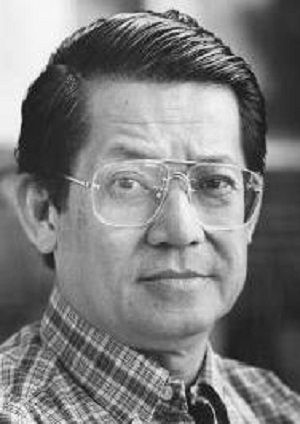WikipediaExtracts:Benigno Aquino Jr.
Extracted from Wikipedia --
Benigno Simeón "Ninoy" Aquino Jr. (, locally [bɛˌniːɡ.no ʔɐˈxiː.no]; November 27, 1932 – August 21, 1983), was a Filipino politician and journalist who served as a senator of the Philippines (1967–1972) and governor of the province of Tarlac (1963–1967). Aquino was the husband of Corazon Aquino, who became the 11th president of the Philippines after his assassination, and father of Benigno Aquino III, who became the 15th president of the Philippines. Aquino, together with Gerry Roxas and Jovito R. Salonga, helped form the leadership of the Liberal Party-based coalition against ex-President Ferdinand Marcos. Aquino was a significant emotional leader, who, together with the intellectual leader Sen. Jose W. Diokno, led the overall opposition.
Early in his Senate career, Aquino vigorously attempted to investigate the Jabidah massacre in March 1968. Shortly after the imposition of martial law in 1972, Aquino was arrested along with other members of the opposition. He was incarcerated for seven years. He has been described as Marcos' "most famous political prisoner". He founded his own party, Lakas ng Bayan, and ran in the 1978 Philippine parliamentary election, but all the party's candidates lost in the election. In 1980, he was permitted by Marcos and his wife Imelda to travel to the United States for medical treatment following a heart attack. During the early 1980s, he became one of the most notable critics of the Marcos regime, and enjoyed popularity across the US due to the numerous rallies he attended at the time.
As the situation in the Philippines worsened, Aquino decided to return to face Marcos and restore democracy in the country, despite numerous threats against him. He was assassinated at the Manila International Airport on August 21, 1983, upon returning from his self-imposed exile. His death revitalized opposition to Marcos; it also catapulted his widow, Corazon, into the political limelight and prompted her to successfully run for a six-year term as president as a member of the United Nationalist Democratic Organization (UNIDO) party in the 1986 snap election.
Among other public structures, Manila International Airport has since been renamed Ninoy Aquino International Airport in his honor, and the anniversary of his death is a national holiday. Aquino has also been listed as a Motu Proprio human rights violations victim of the Martial Law era.
